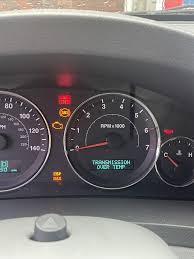Welcome to Nelson Auto Repair’s blog! Today, we’re focusing on a crucial aspect of vehicle maintenance: oil changes. One of the most common questions we get from our customers is, “How often do I need to change my oil?” Let’s dive into this topic to provide you with a comprehensive understanding.
Understanding Oil Change Frequency
Oil is the lifeblood of your vehicle. It lubricates, cleans, and cools the engine’s internal components. However, over time, it degrades and becomes less effective. The frequency of oil changes depends on several factors, including the type of vehicle, the age of the car, driving habits, and the type of oil used.
Traditional Guidelines
Historically, the standard advice was to change the oil every 3,000 miles or every three months. This guideline was applicable for older vehicles and conventional oil types.
Modern Advancements
With advancements in automotive engineering and the development of synthetic oils, many newer vehicles can now go longer between oil changes. Modern synthetic oils can last 5,000 to 7,500 miles, and in some cases, even up to 10,000 miles or more.
Check Your Vehicle’s Manual
The best source for specific information about your vehicle is its owner’s manual. Manufacturers provide recommended oil change intervals based on extensive testing and the design of your specific model. Always refer to this guide as your primary resource.
Factors Influencing Oil Change Intervals
Several factors can influence how often you should change your oil:
Driving Conditions
Frequent short trips, stop-and-go traffic, or driving in extreme weather conditions can lead to more frequent oil changes.
Engine Type
High-performance engines or older engines might require more frequent oil changes.
Type of Oil
Synthetic oils last longer than conventional oils. If your vehicle uses synthetic oil, you can generally go longer between changes.
The Risks of Infrequent Oil Changes
Delaying oil changes can have several negative consequences:
- Increased Engine Wear: Old oil loses its lubricating properties, leading to increased friction and wear on engine components.
- Sludge Build-Up: Over time, oil can break down and form sludge, which impairs engine performance and may lead to costly repairs.
- Reduced Fuel Efficiency: Dirty oil can reduce engine efficiency, leading to higher fuel consumption.
Signs You Need an Oil Change
Watch for these signs that your vehicle might need an oil change:
- The oil change light on your dashboard is illuminated.
- The oil appears dark and dirty.
- You notice a strange noise or smell from the engine.
Conclusion: Regular Maintenance is Key
Regular oil changes are a simple yet crucial aspect of vehicle maintenance. They extend the life of your engine, ensure optimal performance, and can prevent costly repairs down the line. At Nelson Auto Repair, we’re committed to helping you keep your vehicle in top condition. Schedule your next oil change with us, and rest assured that your car is in expert hands. Remember, consistent maintenance is the best way to ensure your vehicle’s longevity and reliability.






